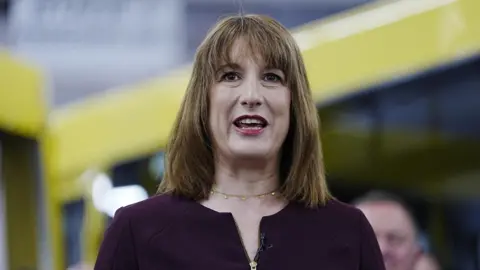The recent developments surrounding the Labour Party’s handling of winter fuel payments mark a tumultuous journey that has drawn extensive scrutiny. This saga, characterized as a slow-motion U-turn, began nearly a year ago when the then new Chancellor Rachel Reeves announced a controversial revision to the Winter Fuel Payment, a staple support for many pensioners in the UK. Initially, Reeves proposed limiting the payment to pensioners qualifying for pension credit and other means-tested benefits, which amounted to approximately 1.5 million people, thereby saving the government around £1.5 billion annually.
As the announcement echoed through parliamentary halls, Labour MPs expressed their frustrations, feeling the blowback from the decision would tarnish their party’s reputation. Critics within the party noted the detrimental impact this policy could have on vulnerable pensioners during colder months, igniting a broader debate about wealth distribution within social support frameworks.
Fast-forward to recent weeks, during which Prime Minister made it clear that the government would revisit the payment threshold, signaling a shift in their earlier stance. Last week, Chancellor Reeves followed up with reassurances that the new qualifying criteria would be in effect for the upcoming winter season, with clarity on both who will receive the payment and who may be obligated to return it.
A crucial question now arises: was this change necessary at the outset? Some insiders assert that the government could have enacted this decision sooner without much difficulty. Nonetheless, there exists a faction that argues the Treasury initially faced genuine concerns over financial metrics, believing they had no option but to implement cost-saving measures to address immediate discrepancies in the budget.
This new announcement has come at a particularly rapid pace; there has been no long wait until the autumn Budget or the Spending Review slated for Wednesday. The government has set a new threshold for fuel payments, which is projected to cost around £1.25 billion. However, ministers have maintained that this will not translate into a “permanent” increase in government borrowing, raising further questions about the borrowing level, duration, and which budgets might feel the pinch as a result.
For many within the Labour Party, the initial decision regarding winter fuel payments has been viewed as a significant misstep during their first year in office. As they aim to set this controversy behind them, it remains a contentious issue, one likely to linger in the political narrative of this government as they face questions about their competence and commitment to supporting the elderly.
Ultimately, while Labour seems eager to move forward, the public conversation surrounding social welfare provisions, specifically aimed at pensioners, continues to provoke divisive opinions. The political fallout from this affair illustrates a critical lesson in governance—debates over fiscal responsibility must be handled with sensitivity and foresight, especially when the livelihoods of some of the most vulnerable members of society are at stake.
Given this context, the Labour Party’s handling of winter fuel payments will likely stand as a defining moment in their early governance, shaping not only their political narrative but also public trust as they navigate the complexities of social support policies in the coming years.



